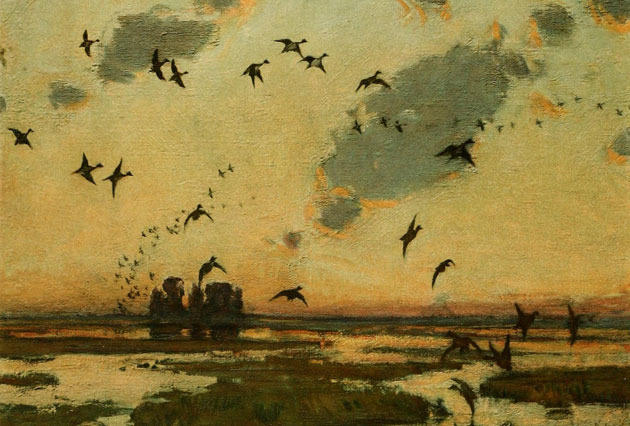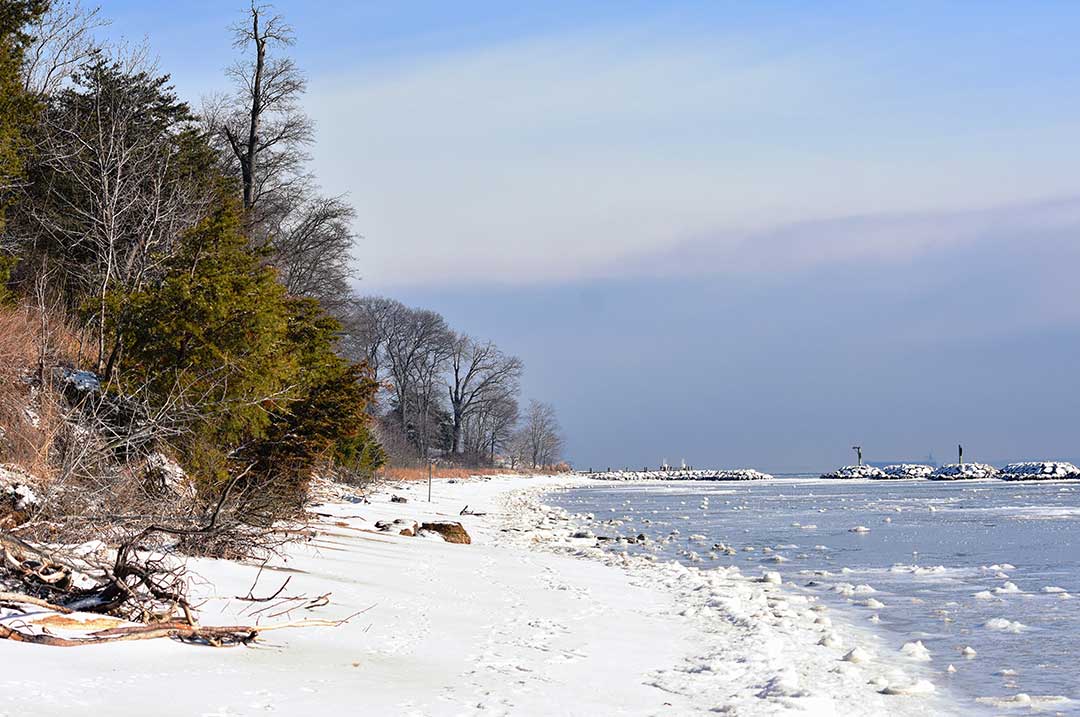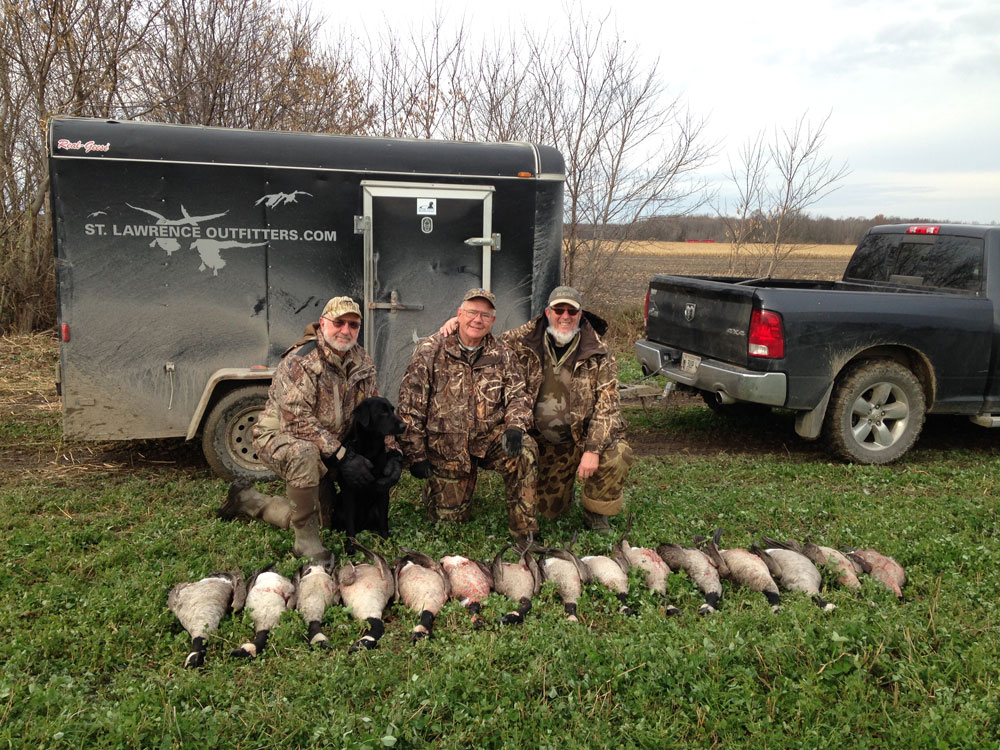Col. Jocelyn took with him his fine old English gun, a few boxes of 4.’s, a small basket of provisions, and—more for companionship than for help—Three Cents, a little black boy, who, although he had a Christian name, had long worn that mercenary title. And his bright ways and his diminutive figure went far toward establishing the fitness of it.
Col. Jocelyn and Three Cents were great “chums.” When the boy was four years old, he had remarked stolidly to his father, the coachman, “Pa, you didn’t currycomb dat horse right.” Word of this rebuke came to the master of Mayfield, and he chuckled in great glee, and decided thenceforward to make Three Cents his chief counselor.
For several years this comradeship between the white-haired old gentleman and the boy had continued; in fact, the colonel became quite dependent upon Three Cents, and the boy looked to his patron for everything.
So it happened that they set out together in the canoe, and headed for the mallard paradise—there where the great river lost itself in the greater sea, and where, by day and by night, clouds of wild ducks, wintering on the coast, rolled over the shimmering beaches and the yellow river mouth toward Bird Bank.
It was a twelve-mile paddle down from the plantation; but the tide was ebbing, and both occupants of the canoe were swinging cypress paddles; so the long, slim craft shot swiftly by the shadowy banks, by tall, sighing growths of tawny marsh, by pebbly strands where the tide washed languidly. Once, standing spectrally transfigured against the pale afternoon sky, they saw the grim, bleached skeleton of what had once been a proud house that fire had devoured. Then they passed a prosperous place where, in happy contrast to the recent scene, a turpentine still was sweetening the air with soft aromatic fragrance. Then the plantations ceased and there began the long waste stretches of marsh that extended clear down to the mouth of the river.
When they had at last landed on the back beach of Murphy’s Island, they repaired to the best of the duck ponds, which was situated a good mile across the island. On their way they were aware of the long lines of ducks that frequently darkened the strip of sky above their reed-grown pathway.
Coming at last cautiously to the edge of the pond, where the colonel expected to hear a great clamor of feeding ducks, they were met by a telltale silence. Then, far across the stretch of water, they saw a bald eagle poised on a dead tree; there would be no duck shooting where the monarch ruled.
“Look here. Three Cents, that old rascal has every mallard within a mile flying for his life!” the colonel exclaimed. And to himself he muttered, “Blythe’s dinner won’t fly here this evening!”
“Maybe, sir, we might find Cedar Island more better, sir,” the boy ventured.
Col. Jocelyn did not answer; but from the hopeful look that stole into his face you might have guessed that Three Cents had solved the problem. He looked quizzically at the sky, with its few ragged clouds scudding eastward. He had fully made up his mind; but on matters of hunting the colonel always thought it wise not to accept another’s judgment too hastily. Hesitation implied doubt, doubt implied thought and knowledge, and the old gentleman was not above the gentle vanity of wishing to be regarded as learned. “Well,” he said at last, “there isn’t any place to sleep on Cedar Island, and here we could spend the night in the old clubhouse; but, at that, I guess Cedar Island is our only chance.”
“Yes, sir,” echoed Three Cents, as if the idea weren’t his own, “That’s de only chance.”
Retracing their steps, they soon came to the canoe, which they launched and headed straight across the river for Cedar Island—a long, low sea island, with heavy delta marshes behind and with a wooded point that faced the ocean. It was a famous place for ducks, but because of its remote situation, sportsmen rarely visited it.
As the line of cedars on Murphy’s Island sank into the sea, Col. Jocelyn and Three Cents gained fair headway toward their goal; but behind them the ashen clouds in the west were hiding the low sun. Moreover, the paddle across the river was long and difficult in the cross sea that was running. The colonel was on the middle seat; the boy swung his paddle manfully from the stern. The going was not very rough, but with every stroke they felt the lightness of their craft and the majestic power of the sea that paced beneath them.
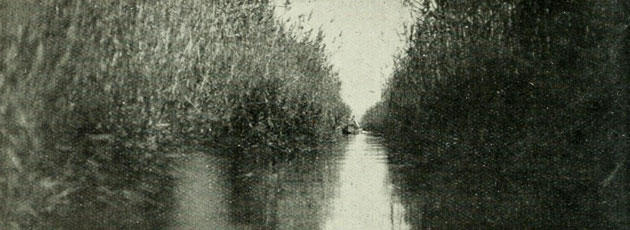
When they were halfway across, the colonel knew that he had made a mistake in trying to reach Cedar Island that night; Three Cents had known the same thing some time before, but he had not expressed his doubts. There seemed to be no immediate danger; but it would be dark before they got there, and the west wind over the salt water was growing very cold.
With those thoughts in his mind, the colonel glanced over his shoulder with a smile intended to cheer Three Cents; but the head of the boy was buried between his shoulders, and his paddle was flashing doggedly from the murky water to the chill air and back again.
“He’s all right,” the colonel assured his conscience, which was accusing him of bringing a child out into danger.
The sun had now set and the sweep of the ebb grew slower. Tint by tint the colors faded from the sky, and the counterglow in the east died swiftly. Over the river the incoming ducks began to fly. The dull roar of the surf on the outer beaches sounded insistently. The shore lines faded, vanished—and it was night.
“Boss,” asked Three Cents, through lips stiff with the briny cold, “are we headed right? I believe, sir,” he added respectfully, “we’re too far down river.”
Had the colonel shared that opinion there would have been less cause for apprehension; but the old gentleman thought they were too far upstream. That meant that they did not know where they were. Above them they could hear the whistling music of wild ducks’ wings. Vaguely, to the south and east, they heard the booming of the surf. Darkness was before them and behind them; and darkness covered them.
The colonel, old hunter that he was, began to feel uneasy—chiefly on account of the presence of Three Cents. An hour before it had seemed simple to reach either island; but now the blessed sight and touch of dry land seemed indeed remote possibilities.
There was no moon. There were no stars. The canoe seemed to have changed its course; and the high, smooth waves that she was now riding moved with the strength and dignity that they gather only in the ocean. The cold salt spray began to break over the gunwales, and it froze as it fell. The two paddles were already coated with it. The wind was slowly rising, and with it came that bitter, bitter sea cold that cuts into the marrow. For the first time in his life, Col. Jocelyn felt powerless to fight the forces that appeared to be leagued against him. His hands were almost as stiff from cold as the paddle. His legs and feet were losing their feeling.
Suddenly, with a jerk of decision, he laid his paddle along the thwarts in front of him and, steadying himself on the gunwales, turned himself in the boat so that he faced Three Cents. Dimly he could make out the pitiful little form. The colonel’s strong arms reached out, took the child by the shoulders, and lifted him down into the bottom of the boat. He had to wrench the paddle from the boy’s hands; it was frozen to the palms.
“Oh, please, boss,” the little fellow chattered, “don’t let me freeze! I suspect I’m a goner this time; but I ain’t sorry, sir, that I come with you.” Then Three Cents nestled up between the colonel’s knees.
Colder grew the wind, and the waves broke heavily against the boat. Three Cents moaned and trembled. There was nothing to cover him with. Col. Jocelyn lifted one of the little boy’s hands and slipped it up his own sleeve. “Can’t let the child die,” he muttered.
With that he fumbled with the buttons on his coat, loosed it, and, quivering in the piercing cold, slipped it off, and laid it over his little comrade.
Under his coat Col. Jocelyn wore a low-necked jersey. Through that the stark wet wind cut like a saber. He tried to grip his paddle in his numb hands; if he could only get started, he thought, he might be able to warm up. But his hands, coated with ice, refused to respond to his will; so blindly he tried to steer the canoe, and tried to keep her before the wind so that the waves would not swamp her.
Three Cents had dropped off to sleep, but he was still moaning and shaking; and once he shook with a violent chill. The colonel tried to fix the coat tighter about the boy, but he could not manage it very well. Then he tried to cover the boy’s feet with the loose straw in the bottom of the boat, but the child woke up, crying. Clinging to the colonel’s knees, he begged him to make a fire in the boat.
For answer the colonel unbuttoned his jersey, slipped it off, and wrapped it closely about the little black boy whom he was literally giving his life to save.
The child felt instant and grateful relief—the man, acute agony. The fiend of cold seemed to lay icy hands on his very heart. The wind felt scorching, and he thought himself intolerably burned; but he slowly realized that he must be freezing to death. There in the darkness, there in the treacherous inlet, he would meet his end. Antietam or Gettysburg, he said, would have been better than this.
Then a monster, blacker than the night, rose out of the water before them; it rushed down upon them; and the bow of the canoe ran high on the shore of Murphy’s Island.
Somehow, he forgets how, the colonel and Three Cents crawled to the old clubhouse, where they built a roaring fire. And before its huge comfort and cheer they ate the provisions from the basket and slept.
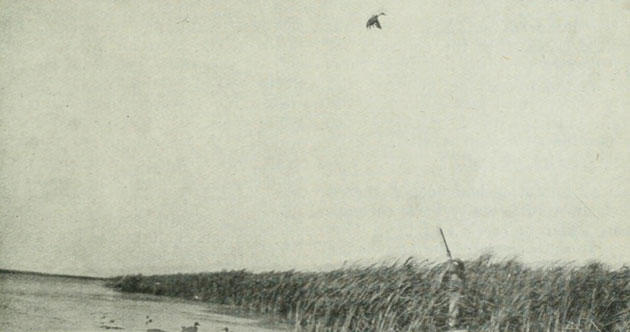
On the way home the next morning the colonel shot two mallards, and he sent them, with his regards, to Maj. Blythe Biddecomb.
Two days later Maj. Biddecomb was entertaining at dinner.
“Mallards?” he replied to a question concerning their number on the Santee. “There are millions of them there, sir. Now, my dear personal friend, Col. Henry Jocelyn, sent me this pair; and I’ll warrant you, sir, that he wasn’t on the river long enough to make a shadow. In fact, for a man so robust as I am, mallard shooting is just a little tame; but Henry, dear fellow, could never stand the cold and exposure as I can, God bless him.”
This story originally appeared in Rutledge’s Old Plantation Days, published in 1921 by the Fredrick A. Stokes Company. Minor edits were made to the original manuscript. Text made available by the Internet Archive. Cover image from A Natural History of the Ducks, by John C. Philips, 1922. Additional photos from Rod and Gun, 1910. All images public domain. Made available by the Internet Archive.

